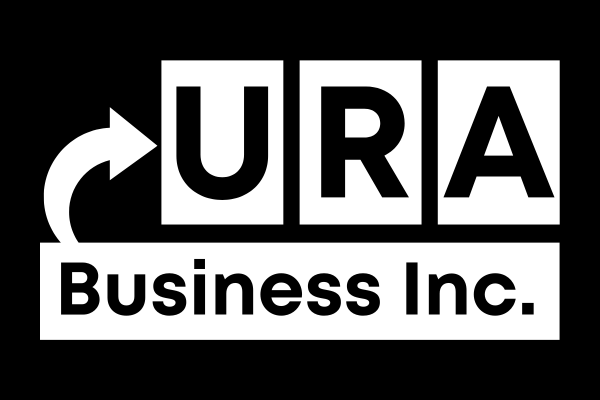What’s the one thing you need to connect with your audience? Visibility. How can you gain visibility when hundreds of new websites are cropping up each week? By Using Keywords. Keywords help websites rank on search engines for all website pages and posts.
Attracting the right audience to your website translates to higher traffic, more conversions, and increased revenue. The importance of keywords for SEO is highly underrated, but it’s one of the simplest yet effective tools to improve your website’s ranking.

What are Keywords?
Simply put, keywords are bridges that lead users to the content they are searching for. Any phrase or words that users type into a search engine are clues for what they are looking for and are therefore called keywords or search queries.
By building your content strategy on the right keywords or key phrases, users can easily find your website when they look for it. For instance, if a user searches for “best manifestation book”, “morning habits of successful people” or “symptoms of burnout”, and you run a personal development website, these queries now become very important keywords for you. For your website to rank higher and show up on the first page of Google, incorporating such phrases becomes vital to reaching your audience.
However, understanding the keywords goes beyond knowing what your audience is searching for. Knowing the intent and reason behind a keyword will not just help you solve their query but also improve your website’s SERP ranking.
So how can you do this? By categorizing their search intent into four main groups: Navigational, Informational, Commercial, and Transactional.
The keywords “what is manifestation” and “manifestation courses” have completely different search intents. By looking at the keywords and analyzing the search intent, you can easily make content geared toward what your audience is really searching for and provide them with the best experience possible.
Are you a talented writer with experience providing ghostwriting services? We hire people like you to write blogs for us and other businesses. Obviously, we need more writers for our own business, as we have so few blogs of our own. Please send us a message, tell us your writing niches and how you stand out!
Use our contact form, or click the photo above and send us a message on LinkedIn. For help get started as a freelancer, use our contact form or Lead Gen Form on LinkedIn.
Importance of Keywords on Your Website
Keywords are the breadcrumbs that lead your audience to your site, but an absence of SEO keywords can significantly decrease your site’s potential.
With the digital landscape continuing to evolve, businesses are increasing their digital footprint to connect with their audience online. Keywords can be the difference between a thriving business and one with a digital handicap. Let’s consider some of the reasons why keyword optimization is so important.
- Keywords help in increasing organic traffic.
Search engines rank websites based on the content they understand, and the only way they understand it is through Keywords. Your audience will only be able to visit your site if you come up on the first few pages of Google.
- Keywords help in increasing conversions.
The more eyes that are on your site, the higher your conversion rate will be. Keywords lead potential clients to your site and increase your chances of acquiring leads and clients.
- Keywords help in creating new content.
By analyzing the keywords your audience is using and the content they are looking for, you can get content ideas and subsequently be able to provide greater value. For example, if during your research, you found new queries surrounding manifestation, you could make a blog post for your site tackling the new subtopic and rank higher on SERPs.
How do you Choose the Right Keywords?
Now that we know how important keywords are for your site’s success, the next step is to decipher how to select the right keywords.
Firstly, consider the search volume of a particular SEO keyword. Ranking your website for high-volume keywords would be a little tough, but you also can’t expect a boost in traffic solely through low-volume keywords. Ideally, you want to target a combination of keywords that fall in high, medium, and low volume ranges.
Secondly, looking at the keyword competition is also very important. While targeting a low competition high volume keywords should be your first bet, context and specificity are also important considerations.
Thirdly, having an idea about the keywords working for your competitors can also point you in the right direction.

You Can Steal Your Competition’s Keywords- Shift the rankings in your favor
You can even use your competitor’s keywords in your posts and steal their ranking. Blog writing is a competition, being able to steal keywords from your competition and using them to knock them out from the top ten in search engines, means you can steal their clients. At the end of the day we know you are the best for the job! *evil laugh*
Types of Keywords in SEO and How to Use Them
You made a list of the targeted keywords, well now what?
Before you jump into making content, there’s one more thing to do: Know how to use different keyword types.
Just as you can’t fit a round ball in a square hole, you can’t treat every keyword the same. Imagine, you have a big bag of multi-colored balls, and you have to arrange them by color, keywords have different properties to them too. At every step of the content journey, a different type of keyword facilitates a different function.
While there are several types of keywords, we’ll focus on two of the most important ones to get you started.
What are Seed Keywords?
Seed keywords are broad topic, high volume, short-tail keywords. They are the “seed” for finding new, specific content ideas. Just by doing a quick Google search, social media browsing, and brainstorming, you can pick your seed topics.
How to use:
You don’t insert seed keywords in your main content but instead use them to identify different subtopics and related specific keywords. Since they have a high monthly volume, these keywords help in generating long-tail keywords, allowing the site to rank better. For instance, “manifestation” is a seed keyword, and “trending manifestation techniques” is a specific long-tail keyword.
What are long-tail keywords?
Long-tail keywords are highly specific keywords having more than 3-4 words. These search queries are easy to rank for since they have low traffic and help in increasing conversions. The users that land on your site because of these keywords usually have a clear intent and are easier to guide through the sales funnel.
How to use:
You can sprinkle these keywords in your main content, meta description, slug, and other places. Keep the user intent in mind and strategically place them on your website. Additionally, you can also create topic clusters from them.

What can you do to Boost Your Website Ranking Using SEO Keywords?
At this point, you know that adding SEO keywords is the single best thing for your website. And while finding the right keywords and knowing how to put them to use is half the battle, let’s take a look at some simple things that can make a world of difference.
To avoid your hard work going to waste, make sure to have these tips on the top of your mind and watch your website’s rank transform into a rocket!
- Avoid keyword stuffing. You might be excited about finding all the keywords that will make your content rank higher, but be mindful of your keyword density. Don’t fill your site with keywords.
- A good SEO practice is to make sure you are satisfying the search intent. Provide all the relevant information. For instance, your blog on “how to start manifesting today” should be so comprehensive that the user doesn’t open another article after reading yours.
- Focus on making your meta description short and succinct. If you can, add a relevant primary or secondary keyword.
- Ensure the content you’re generating and the keyword you’re targeting match.
And that’s it!
Now that you know how keywords help, why they are important for any digital business, and how to choose and use the right keywords, optimizing your website for SEO using keywords is as easy as this.
Click this button to further understand search engine optimization. It ranks number one on Google, therefore it should be the best example of search engine optimization. Take a moment to read it over, paying attention to the keywords the writer uses. Ask yourself, “How do these keywords enhance the website’s visibility and reliability in the eyes of search engines?”

Click this button to further understand search engine optimization. It ranks number one on Google, therefore it should be the best example of search engine optimization. Take a moment to read it over, paying attention to the keywords the writer uses. Ask yourself, “How do these keywords enhance the website’s visibility and reliability in the eyes of search engines?”
Frequently Asked Questions (FAQs)
What is a good SEO keyword?
A good SEO keyword helps you target the right audience. It has to be specific and highly relevant to the users search results. Ideally, keywords having low competition and high search volume will help your website rank higher on the SERP. Long-tail keywords are usually a good bet.
Where do I add keywords for SEO?
The most effective places to add your keywords for SEO are meta description, meta title, title of the blog, content, image, and alt tags. You can also use LSIs to make your content more relevant and rank for other keywords too.
How do I choose the right keyword to rank higher?
There are two important things that should be kept in mind while selecting the right keyword: keyword metric and keyword gap. Choose keywords that have the right metric to rank faster. Analyzing keyword gaps helps to identify queries that are relevant to your audience and adding it in your SEO strategy can make a huge difference.

